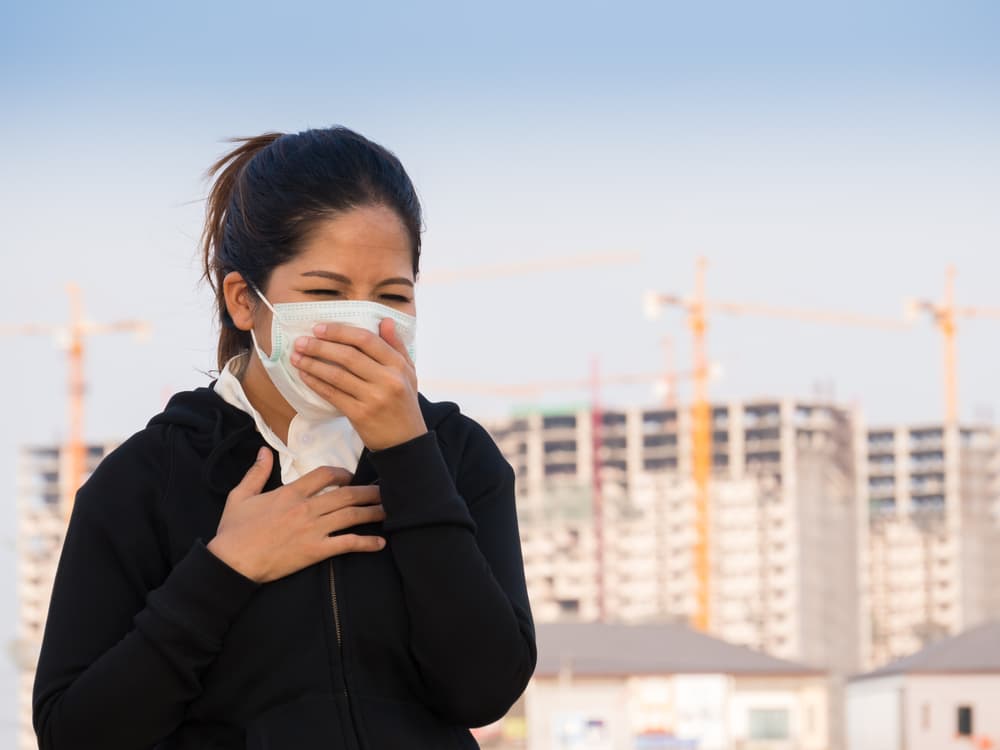Contents:
- Medical Video: 7 Common Things In Your House That Can Damage Your Lungs!
- The types of dust particles that you need to know
- What are the dangers of dust for health?
- What is asthma?
- Asthma triggers
- How to prevent asthma?
- What is chronic bronchitis?
- What are the causes of chronic bronchitis?
- How to prevent chronic bronchitis?
Medical Video: 7 Common Things In Your House That Can Damage Your Lungs!
Wherever you live, dust is a part of your daily life. In nature, dust is formed from natural erosion of soil, sand, and rock.Living things in the wild also contribute to dust in the air: pollen, microscopic organisms, plant particles are also part of the dust in the environment.In urban areas, industrial activities, gardening, motorized vehicles, etc., are the main causes of dust.
Of course you have ever wondered, what will happen if we breathe often inhale dust?
The types of dust particles that you need to know
Because it comes from many sources, there are many types of dust. There are dust particles that can be seen, some are not visible. The smaller the dust particles, the less likely you are to see them. Small dust particles can stay longer in the air and travel longer distances.
The larger dust particles that you can see are those that accumulate on the surface of the car or furniture after a certain period of time. The body protects itself from these particles by trapping them in the nose and mouth when you breathe. In fact, even if you accidentally swallow it, this particle is quite harmless and can be easily removed through breath.
Smaller or finer dust particles are even more dangerous. These particles will penetrate deeply into the lungs, and even smaller and very fine dust particles can be absorbed directly into the bloodstream.
What are the dangers of dust for health?
As mentioned above, the smaller the dust, the more dangerous it is to health. Another factor to consider is the amount of dust in the air and how long you have been exposed to the dust.
Dust particles that are small enough to be inhaled can cause:
- eye irritation
- cough
- sneezing
- allergic rhinitis
- asthma attack
For people with respiratory disorders, such as asthma, chronic obstructive respiratory disease (COPD) or emphysema, a small amount of dust can block breathing and make their symptoms worse.
Although there are no studies that prove that dust can cause asthma, many people with this condition report that inhaling large amounts of dust reduces their lung function over time and contributes to disorders such as chronic bronchitis and heart and lung disorders.
What is asthma?
There are many asthma triggers: smoke, allergens, and exercise.
- Asthma is a chronic lung disease in which the airways become inflamed.
- Inflammation makes the airways more sensitive to dust, smoke, animal hair and cold air.
- When the lungs come into contact with these triggers, there is an asthma attack, which makes the airways narrow and swell. Mucus is produced and can cause airway obstruction, making breathing difficult.
Asthma triggers
A number of other triggers can also cause asthma attacks, including:
- air irritants, such as smoke (from cigarettes or burning wood or grass) industrial emissions, vehicle exhaust fumes, ozone, fog, or sulfur dioxide
- some foods and preservatives
- respiratory infection
- hyperventilation (heavy and rapid breathing)
- strong emotional conditions, such as stress, anxiety, depression, or fear
- certain drugs, including aspirin and nonsteroidal anti-inflammatory drugs (NSAIDs)
How to prevent asthma?
- Avoid areas where people smoke. Cigarette is one of the most common triggers of asthma. Cigarette smoke, even secondhand smoke and smoke on clothing or furniture, can trigger an asthma attack.
- Avoid asthma triggers. You have to find out what triggers your asthma. Everyone can have different triggers such as cold air, dust, or pollen.
- Control your asthma. Consult with your doctor what medication is suitable to control your asthma condition and when you need to use medication.
What is chronic bronchitis?
Bronchitis is a condition in which you experience coughing with mucus that lasts for a minimum of two months. This cough and mucus is produced when the throat and airway become inflamed due to infection or irritation.
What are the causes of chronic bronchitis?
Chronic bronchitis is most severe in the cold and flu season, when the air becomes colder and harder to breathe with a lot of irritants in the air. Chronic bronchitis usually causes upper respiratory tract infections.
- Smoking is one of the main causes of chronic bronchitis.
- Irritant inhaled from work, pollution or secondhand smoke is another common cause of chronic bronchitis.
- Inhaling irritating fumes or dust can also cause worsening chronic bronchitis.
How to prevent chronic bronchitis?
- Quit smoking.
- Avoid exposure to irritants and dust. Proper protection at work is very important to prevent exposure.
- Avoiding long exposure to air pollution from congestion can help prevent bronchitis.
- Avoid getting close to other people you know are having a cold or flu. You can use a mask.
- Wash your hands frequently to prevent the spread of infection.
For carpenters who are often exposed to wood dust, you should often do medical checks and install a good ventilation system in the workplace, and have medical protection equipment such as face masks. Further routine monitoring of the lungs must be done to detect negative effects on the respiratory system early and prevent the spread of the disease.
Hello Health Group does not provide medical advice, diagnosis or treatment.












